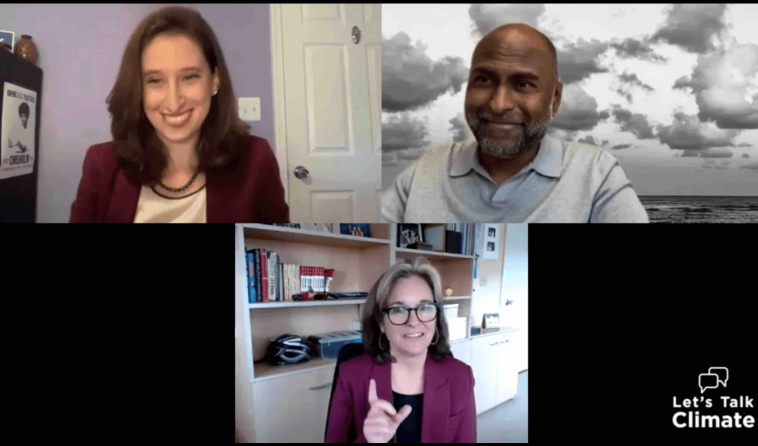Let's Talk Climate Interview: Climate Action for Women's Health and Better Birth Outcomes

We are seeing the impacts of climate change all around us, and even in the face of a global pandemic, it continues to be the greatest public health threat of our lives. Women bear a disproportionate burden of climate impacts, in part because of the increasing evidence of the harms of climate change on birth outcomes.
The most recent "Let’s Talk Climate" episode by ecoAmerica features lead authors of the recent special article on "Climate change, women’s health, and the role of obstetricians and gynecologists in leadership" published in the International Journal of Gynecology & Obstetrics to hear more about the impacts of climate change on human reproduction and the urgent need for action to improve health.
Join lead authors Dr Santosh Pandipati, Director of Maternal-Fetal Medicine at O’Connor Hospital, and Prof Tracey Woodruff, Director of the Program on Reproductive Health and the Environment at University of California San Francisco, to learn more about the strong call for bold climate action from the International Federation of Gynecology and Obstetrics (FIGO).
The grassroots for physicians is when they are interacting with patients day in and day out, and also with their local community of providers…when I start talking to patients about, ‘Hey, you have to watch the air quality index.’ ‘Hey, this is wildfire season, you need to be vigilant about this; you need to be watching heat, especially early in the warm season.’ … When I start talking to patients about these things, they start to understand… this is actually affecting my family here and now… It’s about doing the right thing and protecting lives.
– Dr Pandipati
We need system-wide solutions to deal with the cases of climate change, and this is where the FIGO statement is so important because it directly talks about government-based solutions that government leaders around the world need to address this and they have to address the role of fossil fuel consumption.
– Dr Woodruff
This blog originally appeared on the Climate for Health website.